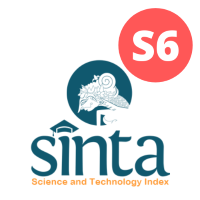| Focus and Scope |
| Reviewer Guidelines |
| Author Guidelines |
Editorial Policy
Publication Ethics
Paradigma Hukum Pembangunan (PHP) is a peer-reviewed journal published by Faculty of Law Atma Jaya Catholic University of Indonesia. The journal is committed to upholding the standards of publication ethics and takes all possible measures against any publication malpractices. All authors submitting their works for publication as an original articles which represent their work and contributions and have not been copied or plagiarized in whole or in part from other works. This statement is based on COPE’s Best Practice Guidelines for Journal Editors.
Publication decisions. The editor of the Paradigma Hukum Pembangunan is responsible for deciding which manuscript will be accepeted. The editors may confer with other editors or reviewers in making this decision, to decide which of the articles submitted to the journal should be published. The editors may be guided by the policies of the journal's editorial board and constrained by such legal requirements as shall then be in force regarding libel, copyright infringement and plagiarism
Fair play. The editor at any time evaluate manuscripts for their intellectual content without regard to race, gender, sexual orientation, religious belief, ethnic origin, citizenship, or others discrimination of the authors.
Confidentiality. The editor and any editorial staff must not disclose any information about a submitted manuscript to anyone other than the corresponding author, reviewers, other editorial advisers, and the publisher, as appropriate.
Disclosure and conflicts of interest. Unpublished materials disclosed in a submitted manuscript must not be used in an editor's own research without the express written consent of the author.
Duties of Editors
The editor of the Paradigma Hukum Pembangunan is responsible for deciding which manuscript will be accepeted. The editors may confer with other editors or reviewers in making this decision, to decide which of the articles submitted to the journal should be published. The editors may be guided by the policies of the journal's editorial board and constrained by such legal requirements as shall then be in force regarding libel, copyright infringement and plagiarism
Fair play. . The editor at any time evaluate manuscripts for their intellectual content without regard to race, gender, sexual orientation, religious belief, ethnic origin, citizenship, or others discrimination of the authors.
Confidentiality. The editor and any editorial staff must not disclose any information about a submitted manuscript to anyone other than the corresponding author, reviewers, other editorial advisers, and the publisher, as appropriate.
Disclosure and conflicts of interest. Unpublished materials disclosed in a submitted manuscript must not be used in an editor's own research without the express written consent of the author.
Duties of Reviewers
Contribution to Editorial Decisions. Peer review assists the editor in making editorial decisions and through the editorial communications with the author may also assist the author in improving the paper.
Promptness. Any selected referee who feels unqualified to review the research reported in a manuscript or knows that its prompt review will be impossible should notify the editor and excuse himself from the review process.
Confidentiality. Any manuscripts received for review must be treated as confidential documents. They must not be shown to or discussed with others except as authorized by the editor.
Standards of Objectivity. Reviews should be conducted objectively. Personal criticism of the author is inappropriate. Referees should express their views clearly with supporting arguments.
Acknowledgement of Sources. Reviewers should identify relevant published work that has not been cited by the authors. Any statement that an observation, derivation, or argument had been previously reported should be accompanied by the relevant citation. A reviewer should also call to the editor's attention any substantial similarity or overlap between the manuscript under consideration and any other published paper of which they have personal knowledge.
Disclosure and Conflict of Interest. Privileged information or ideas obtained through peer review must be kept confidential and not used for personal advantage. Reviewers should not consider manuscripts in which they have conflicts of interest resulting from competitive, collaborative, or other relationships or connections with any of the authors, companies, or institutions connected to the papers.
(These guidelines are based on Committee On Publication Ethics (COPE)

